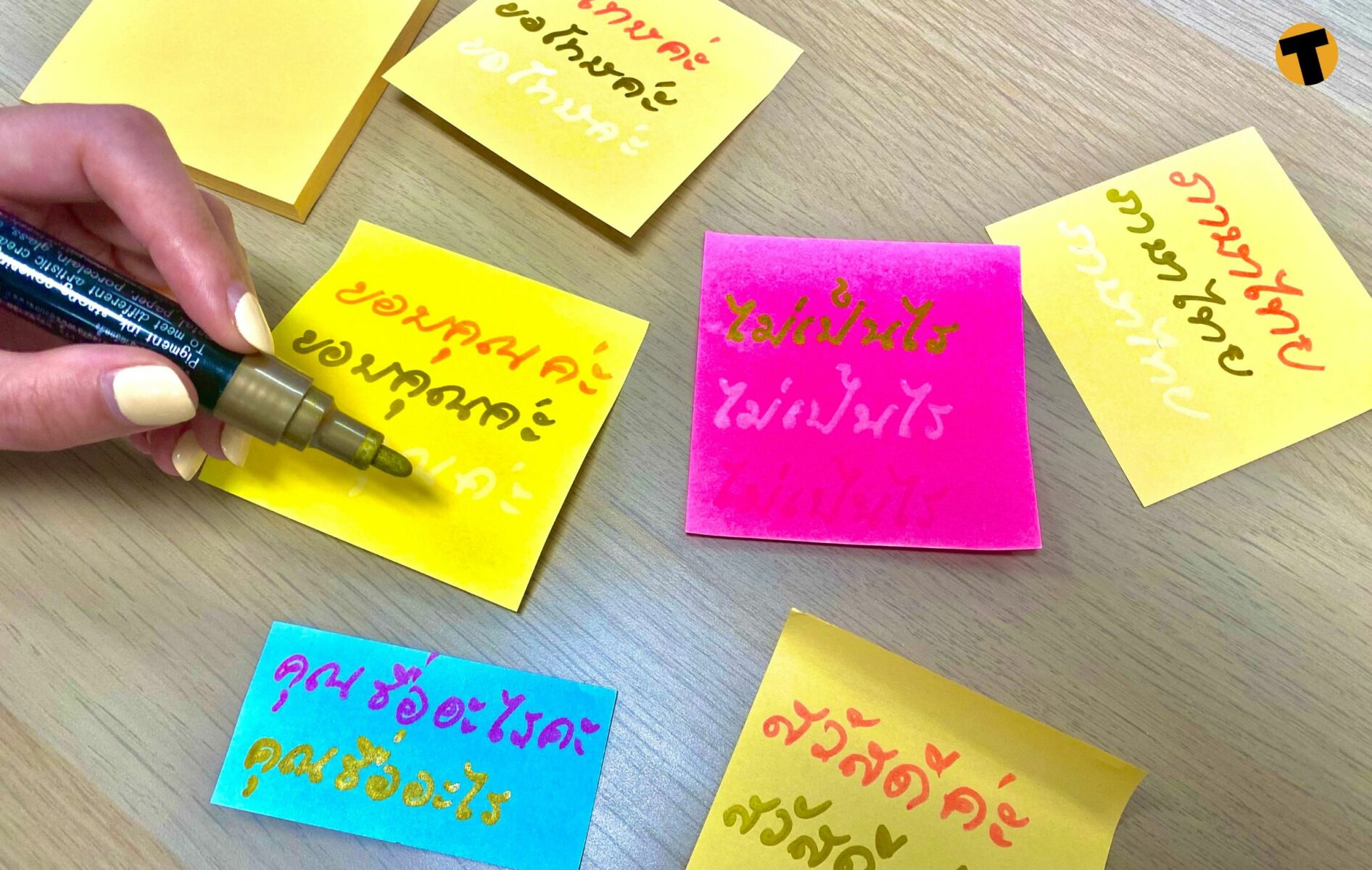Common mistakes to avoid while learning Thai

Oh, the joys of learning a new language! Thai is a fascinating language, filled with unique sounds, tones, and expressions that promise to make your learning experience an exciting adventure. But, like any language, Thai comes with its fair share of challenges and common Thai language mistakes that might catch you off guard. No worries, though! Along with our friends at ALA Language School, we’ve compiled a list of some of the most common mistakes you should steer clear of when learning Thai.
Pronunciation pitfalls

Thai is a tonal language, meaning the tone used can change the meaning of a word entirely. With five tones and oodles of vowel sounds, it’s essential to get these just right to avoid misunderstandings. Practice makes perfect, so don’t shy away from those pronunciation drills!
Overusing literal translation

Now, we all know that English and Thai have significant structural differences, which means resorting to literal translations is a no-no. Given that the tone or pitch of a word can alter its meaning, and that each writing system possesses its own distinct characters and symbols, translating words or phrases directly from Thai to English, or vice versa, can result in translation inaccuracies and misunderstandings. This is because the nuances and idioms inherent to the Thai language might be lost in the process of literal translation. To truly get to grips with Thai, you’ll need to understand its cultural context and idiomatic expressions – this will help you use the language effectively and accurately.
Forgetting word order

Thai may share the subject-verb-object (SVO) word order with English, but it’s a tad more flexible and uses particles to show the function of each word in a sentence. Plus, adjectives and adverbs come after nouns, which is different from English. Misusing word order in Thai can lead to confusion or ambiguity in meaning, and it can cause sentences to sound clumsy or unnatural. This is due to the specific rules and conventions of Thai sentence structure, which, if not followed, may make it challenging for listeners or readers to grasp the intended meaning. So, be mindful of word order to avoid any confusion, ambiguity, or awkwardness.
Skipping polite language

Thai culture puts a premium on politeness, so it’s essential to learn the right words and phrases to show respect. Whether you’re speaking to your elders, people in positions of authority, or anyone you want to show respect to, using polite language is the key to mastering Thai professionally.
Not learning the different pronouns

Thai has a veritable smorgasbord of pronouns based on gender, age, and social status. Make sure you know which ones to use in different situations, and you’ll be well on your way to Thai language success.
Using incorrect particles

The Thai language loves its particles, which are used to indicate grammatical functions, sentence structures, and levels of formality. Using the wrong one can lead to awkward phrasing or a change in meaning, so it’s best to familiarise yourself with these little linguistic gems.
Too nervous to practice with native speakers

Speaking with native speakers is a fantastic way to improve your Thai language skills, but some learners may be too shy to give it a go. Push past those fears, and get chatting with locals – the rewards will be well worth it!
Reluctant to learn reading and writing

Thai may have a unique script, but don’t let that intimidate you. Learning to read and write in Thai will help you communicate more effectively, avoid misunderstandings, and open up a world of professional and cultural opportunities.
Not learning common idioms and expressions

The Thai language is rich with idioms and expressions that might be puzzling when translated literally. If you’re unfamiliar with these phrases, you might misinterpret the intended meaning of a sentence or conversation, which could affect your confidence and fluency. Practising common idioms and expressions while learning Thai can significantly enhance your ability to communicate effectively, comprehend Thai media, and navigate Thai culture with ease.
By steering clear of these common Thai language mistakes, you’ll be well on your way to boosting your Thai proficiency and communicating with native speakers like a pro! And guess what? The fantastic teachers at ALA Language School are here to help you every step of the way. Not only will they guide you in speaking, reading, and writing accurately, but they’ll also work wonders in enhancing your Thai language skills and deepening your understanding of both the language and the rich culture that accompanies it.
Start your Thai language adventure with ALA Language School today, sign up now via their website HERE.
SPONSORED (In collaboration with ALA Language School)
Latest Thailand News
Follow The Thaiger on Google News:


























